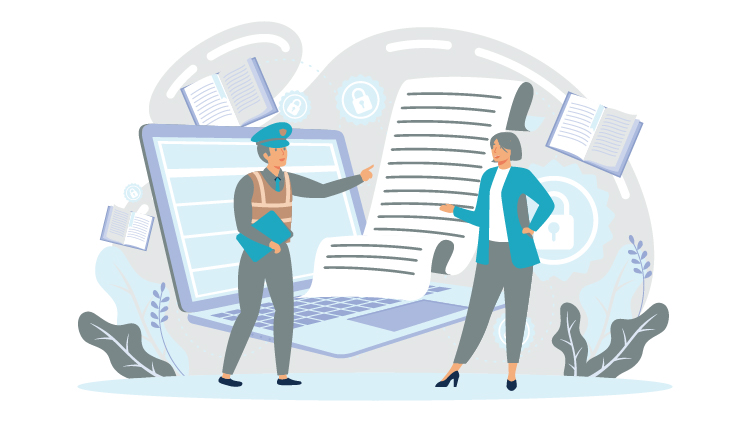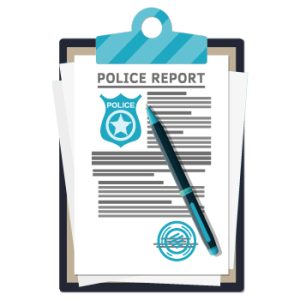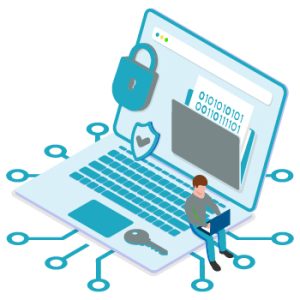Ensuring Data Privacy in Police Reports Translation

In our interconnected world, accurately translating sensitive documents like police reports is more critical than ever. Law enforcement frequently handles multilingual situations, including international investigations. However, translating these documents raises significant privacy concerns. To address these issues, language service providers and translation agencies must implement robust security measures and privacy policies to ensure the confidentiality of the information in question.
The Translation Process
The translation process for police reports often involves human translators, professional linguists with expertise in the field, and sometimes machine translation tools. While both human and machine translation have their merits, the privacy and security of sensitive information are paramount.
- Human Translators: Human translators bring the advantage of contextual understanding and cultural sensitivity. They can grasp the nuances and subtleties within a document and ensure the accuracy and cultural appropriateness of the translation.
- Machine Translation: Machine translation tools, while faster, are not always suitable for translating sensitive documents like police reports. They may not fully respect privacy concerns and security measures.


Privacy Policy and Security Measures
To ensure data privacy in translation projects involving sensitive police reports, language service providers and translation agencies should adopt rigorous privacy policies and security measures. Here are some essential steps they can take:
- Translators should sign confidentiality agreements to protect the information they handle. Consequently, this requirement ensures the security of sensitive data. These agreements should outline the legal consequences of any breach of privacy.
- Access to sensitive documents should be limited to authorized personnel. Therefore, a strict access control system should be in place to prevent unauthorized access.
- All documents and communication should be encrypted. Therefore, this approach protects data both in transit and at rest.
- Documents should be securely stored. Consequently, robust measures must be in place to prevent data breaches or leaks.
- Secure Communication Channels: Language service providers should use secure communication channels when sharing documents and updates with translators and clients.
- A translation memory system should be used to store previously translated content securely. As a result, this ensures consistency and accuracy while minimizing the need to share the same information multiple times.
- Regular security audits and assessments should be conducted to identify and address potential security risks. Consequently, this approach helps address vulnerabilities in the translation process.
Privacy Concerns and Legal Documents
Translating legal documents, including police reports, carries a high level of sensitivity and importance. Ensuring the privacy of individuals involved in these reports is crucial. Privacy concerns in this context involve personal information, witness testimonies, and sensitive case details. Failure to safeguard this information can lead to serious legal and ethical consequences.
National Security and Law Enforcement Agencies
Translating police reports may also involve collaboration with national security and law enforcement agencies in the United States. In such cases, the translation capabilities and security measures need to meet the highest standards. The National Research Council emphasizes the importance of maintaining confidentiality and security, especially in cases involving national security.
Security Incidents and Mitigation
Even with stringent security measures in place, no system is entirely immune to security incidents. In the event of a breach or suspected security risk, translation agencies must have protocols for swift response, containment, and investigation to minimize damage and protect the privacy of the individuals involved.

Certified Translations for Legal Documents
Obtaining a police clearance certificate or criminal record involves navigating through legal proceedings that often require the submission of documents in the target languages of a government agency or judicial system.
Certified Translation plays a crucial role in this process, ensuring that police records and other legal documents are accurately translated from the original language. This meticulous translation is essential for individuals and legal professionals to present clear and understandable documentation to authorities, whether for immigration purposes, employment background checks, or other official uses.
The accuracy of these translations is paramount, as any discrepancy can have significant implications in legal contexts, underscoring the importance of using skilled translators familiar with legal terminology and procedures.
When dealing with personal documents for official purposes—such as acquiring a police clearance certificate translation for federal governments or navigating through a legal process—having a reliable email address to communicate with Universal Translation Services is vital.
Translation services that specialize in these areas understand the intricacies and confidentiality required to handle sensitive information accurately and securely. Their expertise ensures that they translate all personal documents, whether for immigration, employment, or legal verification, with precision. Consequently, they deliver these documents in compliance with governmental standards.
This seamless interaction between individuals and translation services facilitates the smooth progression of legal formalities, making Universal Translation Services an essential partner in bridging language barriers in official documentation.

Language Services in Legal & Healthcare
In healthcare, managing medical records requires language support to meet privacy and protection laws, as shown by D.C. Circuit rulings. This ensures all patients can access and understand their records and legal rights, regardless of language proficiency.
Moreover, laws protect sensitive details like IP addresses in investigative documents from unwarranted exposure. Effective language services are crucial for transparent communication and safeguarding healthcare confidentiality.
Navigating legal proceedings with a criminal record or obtaining a police clearance certificate translation requires precise coordination and communication, often facilitated by email with Universal Translation Services. This specialized agency bridges the gap between individuals and administrative bodies, providing essential language assistance for accurate document translation. Accurate translation is crucial for employment, immigration, and legal compliance.
Universal Translation Services, with its expertise in legal terminology and processes, ensures that every detail in these documents is conveyed clearly. Therefore, it aids individuals in smoothly navigating the complexities of legal and administrative systems.
Language Policy in Legal Transparency
When an administrative agency is involved in legal proceedings, the necessity for financial assistance and adherence to a language access policy becomes paramount. In particular, this is crucial for translating police reports or accessing Privacy Act-protected records. Ensuring that relevant records are accurately translated and accessible upholds the principles of justice and fairness. Consequently, this includes records from nonparty agencies. Such a policy facilitates comprehension for all parties involved, regardless of their linguistic background.
Translating police reports and other crucial documents into required languages supports the legal process; consequently, it ensures individuals’ rights to understand and participate in proceedings. Furthermore, this aligns with mandates for transparency and inclusivity in administrative and legal systems.
Conclusion
Ensuring data privacy in police reports translation is a critical concern for language service providers and translation agencies. Privacy policies and security measures must be comprehensive and strictly enforced to protect sensitive information in police reports. By taking these precautions, the translation industry can play a vital role in upholding privacy, legality, and ethical standards in law enforcement agencies, thus contributing to the effective functioning of the justice system while respecting the rights and privacy of all individuals involved.
Frequently Asked Questions
Human translators or machine translation tools often translate police reports. Consequently, privacy concerns become crucial because these reports contain sensitive information that must be handled securely.
Human translators offer contextual understanding and cultural sensitivity, ensuring accurate and culturally appropriate translations of police reports.
Machine translation tools are faster but may not fully respect privacy concerns and security measures, making them less suitable for sensitive police report translations.
What privacy and security measures should translation agencies adopt for police report translations?
Continuous sign language recognition is a technology that aims to automatically recognize and interpret sign language gestures, making the translation process more efficient and accurate. Researchers are working on improving this technology to enhance translation accuracy.
Privacy concerns in legal document translation involve safeguarding personal information, witness testimonies, and sensitive case details. It is crucial to address these concerns to avoid legal and ethical consequences and protect individuals’ privacy.




